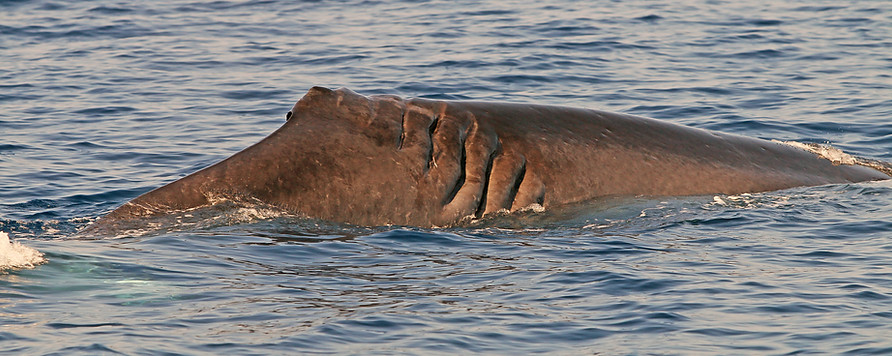OUR SPORT FOR NATURE CAMPAIGN
MORE THAN HALF OF FISH AND MARINE SPECIES HAVE DISAPPEARED IN 20 YEARS IN THE MEDITERRANEAN SEA
Although the Mediterranean represents only 0.8% of the Ocean, it is full of unique biodiversity. It is home to rare species, such as the fin whale, the second largest whale in the world, and the monk seal. Its ecosystems, particularly the Posidonia seagrass beds, play a key role in capturing up to 15 times more carbon than the Amazonian primary forests on an equal surface area!

@Sperm Whale - Red List IUCN

@Long snouted seahorse & Posidonia Oceanica - Red List IUCN
Yet, the Mediterranean Sea is fragile and in danger
The causes? Industrial fishing, chemical and plastic pollution, and maritime traffic. The Mediterranean alone accounts for nearly 25% of global maritime traffic, and collisions with marine animals are the leading cause of unnatural mortality in the region. Not to mention the acidification and warming of its waters caused by the climate crisis.

@Fin whale_N. Pierantonio - Tethys
But there is a solution: Marine Protected Areas
Scientists are clear: marine protected areas are one of the best tools available for protecting and restoring this biodiversity. They enable species regeneration and guarantee the sustainability of marine resources.
In France, nearly 600 marine areas are supposed to be “protected”, but the reality is quite different. Less than 0.04% of the Mediterranean enjoys truly effective protection. Worse still, even in these supposed refuges, destructive practices such as aggregate mining, industrial fishing and the installation of offshore wind turbines are authorized. We know, for example, that over the past 50 years, industrial fishing has caused the greatest damage to marine biodiversity, according to the IPBES. Trawlers plough the seabed, destroying coral and accidentally capturing protected species, nearly half of which are thrown back into the sea dead or seriously injured.
France defends a version of “strong protection à la française”, which departs from the European definition of “strict protection”. This approach tolerates certain extractive activities without measuring their real impact on ecosystems. Yet the research is clear: only high levels of protection can guarantee ecological, economic and social benefits in marine protected areas.

@UNEP-WCMC and IUCN (2021)
Shocking, right? Us too! But here’s the good news: together, we can change that.
Noam Yaron has launched the “Calvi-Monaco Swim for Nature” campaign, an unprecedented 180 km crossing of the Pelagos Sanctuary, the largest marine protected area in the Mediterranean. This extreme sporting challenge, which could set a world record, is more than just a performance: it's a cry of alarm for the Mediterranean.
This challenge is fully in line with the United Nations Ocean Conference, which will take place in Nice from June 9 to 13, 2025. It is a crucial political moment when all the world's top decision-makers will gather. On this occasion, we call for a real awakening of consciences, a powerful mobilization to demand radical measures from the French government, and a firm commitment to protecting the Ocean.
And with you, we can call on governments to :
-
Prohibit all industrial activity in MPAs to guarantee true protection of the Ocean
-
Reinforce the protection of the Pelagos Sanctuary by creating zones closed to industrial activity.
-
Reduce boat speed to 10 knots to better protect marine life and prevent fatal collisions with cetaceans.
The 3 pillars of our campaign :

AWARENESS
Highlight the threats weighing on the Mediterranean and denounce the ineffectiveness of current protections.

ACTION
Mobilizing on a large scale to protect biodiversity with concrete actions.

IMPACT
Funding impactful projects to strengthen the protection of MPAs in the Mediterranean.
WHAT IF SPORT COULD CHANGE EVERYTHING?
THIS WORLD RECORD HAS ALREADY RAISED AWARENESS TO ALMOST 100 MILLION PEOPLE AND WITH YOUR SUPPORT, WE CAN GO FURTHER AND INSPIRE CHANGE TO PROTECT ONE OF THE MOST POLLUTED SEAS IN THE WORLD.


















